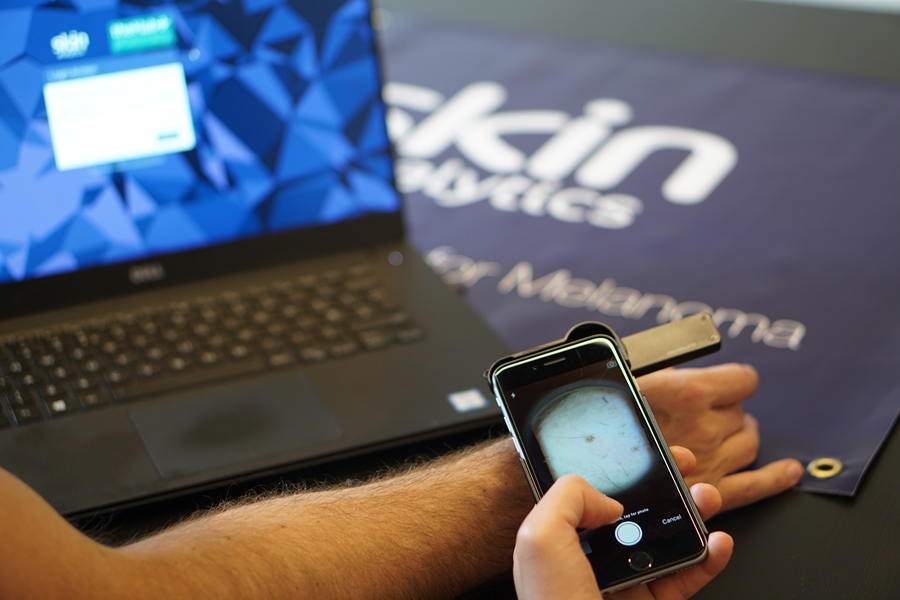How AI is propelling pharma into the modern age

Artificial intelligence’s role in drug discovery is apparent and well-known, with start-ups like Deep Genomics and Atomwise commanding impressive funding rounds. While the advanced tech is proving its value in developing new ways of detecting and treating disease, many across pharma don’t realise its significant value downstream, beyond discovery.
From discovery through approval, and up until therapeutics get into the hands of patients, AI is empowering the pharmaceutical industry to shift into the modern age of digitalisation, which has been crucially important in the post-COVID world.
Today, more than ever, healthcare providers are under pressure to do more with less. Up to 80% of pharmacies have had trouble finding pharmacists, while major chains like Walgreens and Rite Aid have cut hours due to labour shortages. Such shortages are leading to mass burnout across the industry, but digitalisation tools like AI and predictive analytics are providing the support pharmacies need to enter the modern age, help alleviate staff, and ultimately provide better care to patients.
Introducing automation
Among the most significant benefits to AI is that it can automate otherwise monotonous and repetitive tasks, enabling humans to focus on objectives that require more critical thinking. AI also has an incredible ability to generate content, including the written word, at lightning speed. For a drug to be approved, copious numbers of reports are required, oftentimes based on preclinical and clinical data sets. By training the AI models on the researched data, clinical study reports, and patient narratives, documents that are crucial to drug discovery can be drafted by AI in minutes, instead of hours.
Large language models (LLMs), like ChatGPT, are trained on the endless amounts of data made available publicly, but LLMs can also be trained on closed, secure data sets that are proprietary to the pharma brand. ChatGPT and similar technologies aren’t viable for a highly regulated industry because of a heightened need for security, transparency, and explicability of AI models when applied to pharma. Hybrid solutions, however, that apply the content generation power of LLMs to secure data sets, offer significant value in speeding up the time it takes to get drugs approved and bring them to market.
In the past month alone, the ability to fine-tune open-source LLMs has become significantly more accessible and affordable. Costs have plummeted from thousands of dollars to mere hundreds, and the time required has been reduced by a similar magnitude. This rapid advancement has been facilitated by innovative frameworks like QLoRA, an efficient fine-tuning approach for LLMs that doesn’t sacrifice performance.
Previously, this was a complex task, fraught with the risk of losing the model's generalisability. For example, fine-tuning on new medical data could unexpectedly cause the model to lose its ability to translate from English to German, due to the opaque nature of the weights that make up these LLMs. These developments are not only reducing costs and time, but also enhancing the performance and applicability of large language models in various fields, including the pharmaceutical industry.
A sales tool fit for the modern age
Whether it’s discovery, approval, or actually getting therapeutics into the hands of those who need them faster, a characteristic of AI that brings value across industry, including pharma, is that it has the ability to comb through large datasets much more efficiently than humans. As it analyses the data sets, AI is able to identify patterns before creating predictions about what will happen next. By applying AI, the system gets smarter over time and adapts as markets change, meaning its insights and predictions get better the more a company uses it. Across multiple industries and functions, including pharma, these tools are transforming how companies operate.
In discovery, AI combs data to predict which combinations might work, but it's also helping to find better ways to connect healthcare providers and patients. Pharma relies on doctors to prescribe drugs to patients, but there’s a significant learning curve when it comes to already overworked doctors learning about new treatments or therapeutics. An AI-based platform can track and analyse data like demographics, anonymised patient-level data, email opening behaviour, and prescribing rates to help identify which doctors are most likely to respond to an email about a specific therapeutic versus those who prefer phone calls. These tools can also help sales reps have better calls, by offering insights that help them quickly tailor their conversations to a specific doctor’s preferences, interests, and professional needs.
At the end of the day, it’s the patient who benefits the most because they can rest assured that they’re receiving the latest, most optimal treatment available.
Making data flow more efficiently
To stay competitive in today’s complex markets, pharma companies are investing in digital transformation. The pharma industry is ripe with data, but for too long, the slow-moving industry has failed to use data efficiently in bridging the gap to connect patients with effective therapeutic options in more efficient ways. Today, however, AI is empowering pharma brands to leverage impactful data from the earliest phases of drug discovery all the way up until the life-saving drugs are in the hands of the patients that need them most.
With so many platforms available on the market, pharma brands must find the right solutions for their organisations. While some are investing in custom-built platforms, that requires hiring teams of AI experts and data scientists and takes a significant amount of time and resources to get off the ground. When it comes to AI, it's the early adopters that stand to gain the strongest competitive advantage, so spending years on custom development can leave a company further behind. Instead, pharma companies need powerful predictive solutions that are rapid to implement and start delivering results quickly. Furthermore, they need tools capable of growing with the company, that stay sharp in volatile markets.
AI-driven platforms offer pharma companies a way to rapidly adapt an existing tool to their unique needs and situation, and provide relief to already overworked employees. From discovery to clinical trials, right up until therapeutics are in the hands of the patient, cutting edge AI solutions are making pharma more efficient, enabling life-saving results.













